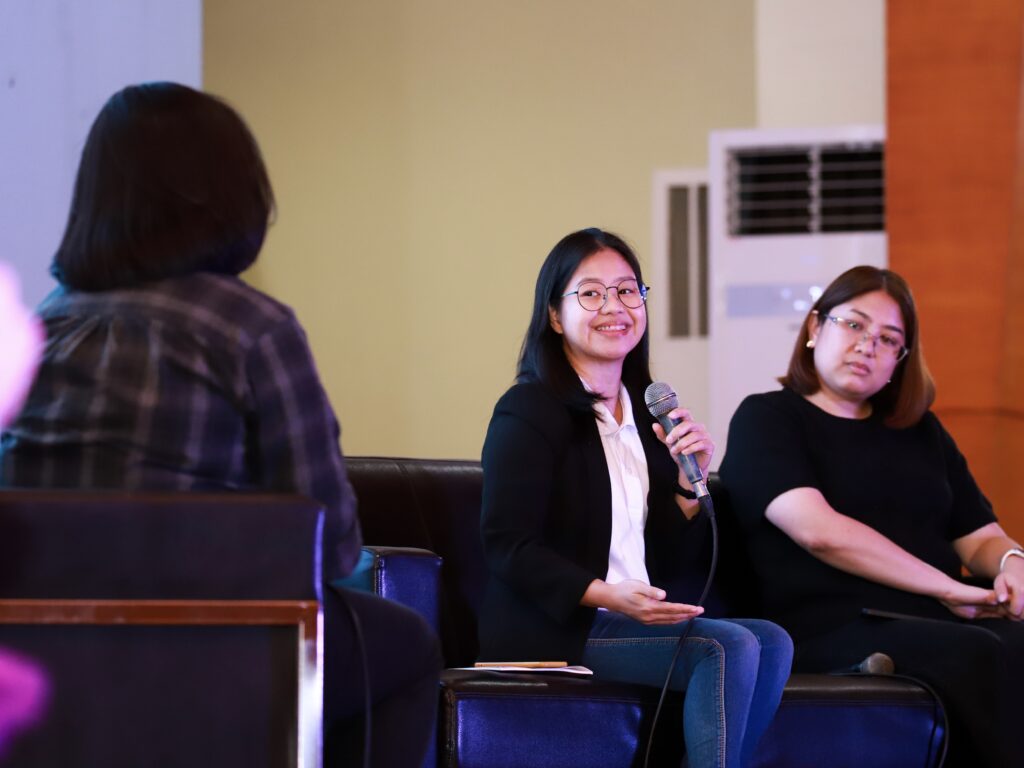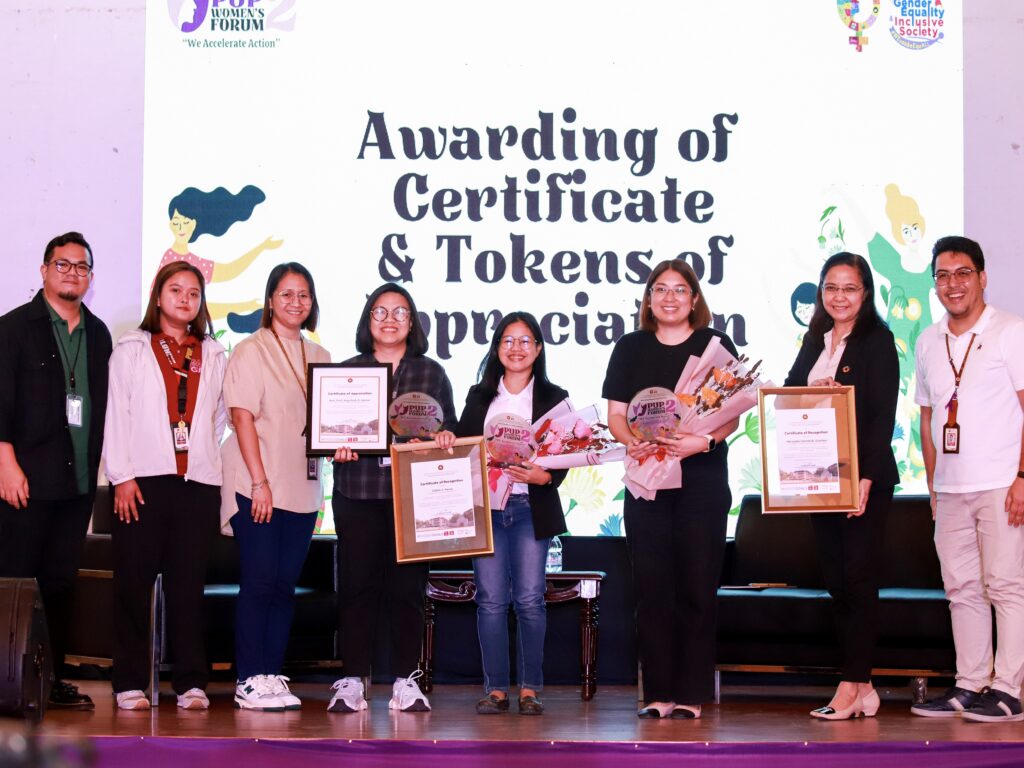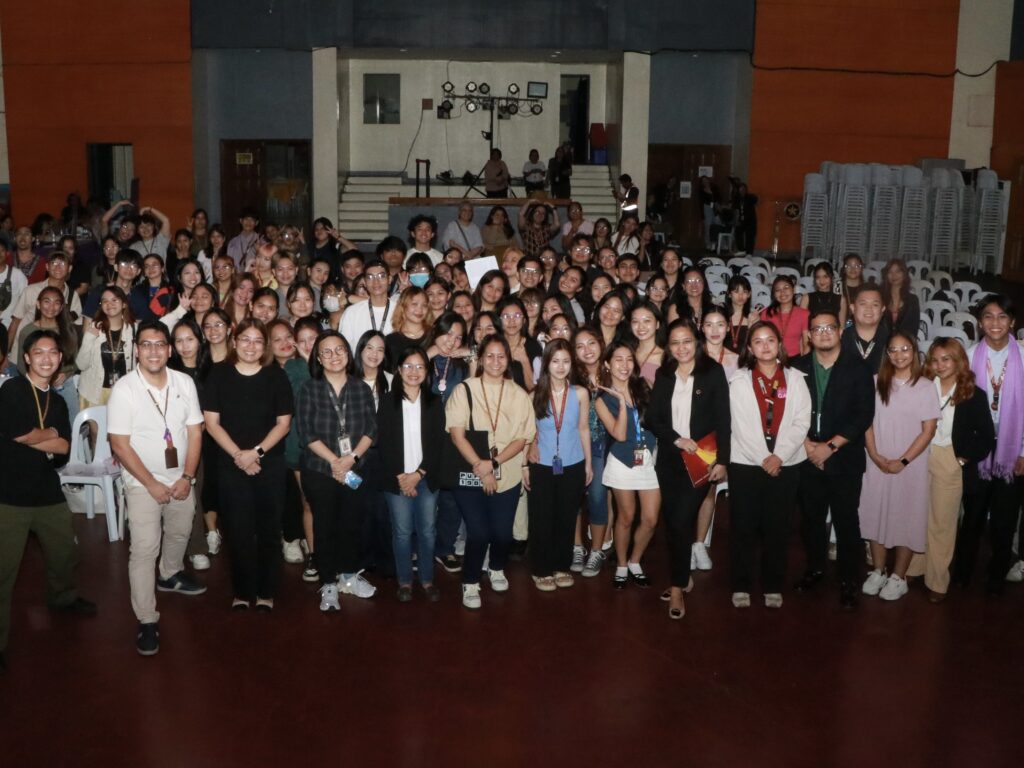As we commemorate the Philippines’ Independence Day, the Center for Women’s Resources (CWR) stands in solidarity with Filipino women and the broader masses in asserting genuine independence and national sovereignty – freedom from continued foreign domination that persists through militarism and imperialist control of our economy.
For years, the country has served as a strategic outpost for the United States through military agreements such as the Visiting Forces Agreement (VFA) and the Enhanced Defense Cooperation Agreement (EDCA). The Balikatan exercises conduct war games annually, and at least nine EDCA sites have been established across the country. Many of them are near vital resources or contested waters; there are other sites that remain undisclosed.
These agreements also enable the Armed Forces of the Philippines (AFP) to receive training and support from the US under the guise of defense cooperation and security – but in reality militarizing communities. This militarization has had devastating consequences for women and children. History bears witness to how foreign military presence has fueled prostitution and violence against women.
The Philippines has also signed a Reciprocal Access Agreement (RAA) with Japan and is pursuing similar deals with France, Canada, and New Zealand. These are taking place amid intensifying geopolitical tensions between the US and China. The Philippines is being dragged into a proxy war, and President Ferdinand Marcos Jr. bears responsibility for enabling this heightened militarization, which significantly increases the vulnerability of Filipinos—especially women and children—to violence.
It must be noted that militarism serves to protect and ensure economic interests — in our lands, seas, and economy. It secures foreign investors’ hold on our natural resources, economic zones, and infrastructure projects under the guise of “development” and “security.” In areas such as Santa Ana, Cagayan, and other places with EDCA sites, women and their communities, especially indigenous communities, bear the brunt of economic displacement, surveillance, and militarized violence.
Today, we call on all women and the Filipino people to fight for genuine independence and sovereignty – our collective aspirations that cannot coexist with foreign military presence, economic dependence, and bureaucrat capitalism that serves imperialist interests.
Resist militarism and imperialist control! Defend Filipino women!
#DefendFilipinoWomen
#DefendNational Sovereignty
In the News
Media coverage and articles about Center for Women’s Resources, its activities, and networks.
Women workers unite for living wages, decent work, and labor rights!
May 01, 2025
As we commemorate International Labor Day, the Center for Women’s Resources (CWR) honors the strength, struggles, and contributions of all working women across the country and around the world.
At the same time, we raise urgent alarm over the continuing crisis of labor exploitation, discrimination, and insecurity—conditions brought by neoliberal policies in labor that disproportionately affect Filipino women and must shape the choices we make in the coming elections.
In recent years, mass layoffs have devastated working-class communities. From 2020 to 2024, over 17,000 workers, mostly women in garments and electronics, lost their jobs in the Mactan Export Processing Zone. Layoffs continue to rise in the business process outsourcing (BPO) sector as AI threatens 300,000 jobs, with women among the most vulnerable. In Davao del Sur, 3,200 contractual workers at Franklin Baker Inc. were placed on “floating status” with no assurance of reemployment or income.
Due to contractualization and low wages, women are more likely to experience discrimination, harassment, and poor working conditions. The largest number of contractual workers is found in major sectors (wholesale and retail trade, other service activities, accommodation and food service activities, and manufacturing). According to the Integrated Survey on Labor and Employment 2021/2022 (ISLE) data, there are only 392,007 women non-regular workers in establishments with 20 or more workers.
Contractualization remains rampant, even in institutions that should uphold labor standards. The government itself employs nearly a million contractual workers, with women accounting for almost four in every ten under job order or contract of service arrangements. These workers are excluded from the most basic benefits and protections, a betrayal of the state’s duty to uphold secure employment and quality public service.
Under the Marcos Jr. administration, only two small wage increases were implemented—insufficient against the skyrocketing prices of goods and services. Meanwhile, the gender wage gap persists. A 2022 Philippine Institute for Development Studies (PIDS) study indicated that women in digital jobs earn 18.4% less than men. In agriculture, women earn only 92 centavos for every peso paid to their male counterparts. Limited data on the gender wage gap further obscures the real scale of inequality.
Workplace violence and harassment also remain widespread. In a survey by the Lloyd Register Foundation and Gallup Report, 22% of women have experienced violence and sexual harassment at work. The majority of those who responded – 47% of women — did not report the incident due to fear of retaliation and the belief that nothing would happen if they reported it. According to the Philippine Statistics Authority (PSA), many cases of sexual harassment are underreported, with only 30% of victims filing complaints due to fear of retaliation and lack of support from the company or workplace.
Worse, union and labor repression is on the rise. Only 4.5% of workers were unionized in 2022, down from 6.3% in 2018. Women’s participation in unions is still lower than men’s, especially in traditionally male-dominated sectors such as manufacturing and construction. According to the 2024 Global Rights Index, the Philippines has been on the list of the ten worst countries for workers for eight consecutive years.
The upcoming elections must be a time of reckoning. In CWR’s recent electoral survey, women themselves have made clear that jobs, livelihood, wages, and income—along with addressing the rising cost of living—are the top issues they face today. This affirms the urgent need for concrete policies and actions toward uplifting of women’s lives.
We call on Filipino women, and all voters, to reject candidates who tolerate or perpetuate labor exploitation. Instead, we must elect leaders who will champion the women’s and people’s call for living wages, decent work, and labor rights. #
📢 CWR at the 2nd PUP Women’s Forum
In celebration of the National Women’s Month, the PUP Gender and Development Office hosted the 2nd PUP Women’s Forum last March 21, 2025, at Bulwagang Balagtas, PUP University Library.
With the theme “WE Accelerate Action”, the forum gathered women leaders from various institutions and organizations who shared their experiences, insights, and advocacy work—driving meaningful conversations on gender equality and collective empowerment.
CWR’s Executive Director Cham Perez took part in the forum to share about CWR’s work and its continued commitment to support women’s movement building in the Philippines.
📸 PUP Gender and Development Office
Threats to PH sovereignty heightens as Pres. Marcos Jr. continues military agreements with US, enters dangerous waters with China
Pres. Marcos Jr. is entering dangerous waters by involving the Philippines in the geopolitical war between superpowers US and China. By allowing the participation of well-known US allies like South Korea, Australia and Japan, in this year’s Balikatan Exercises, Marcos Jr. is risking further alienating and potentially worsening relations with China. This decision could escalate tensions in the region and draw the Philippines further in the US-China conflict.
History has shown how such wars affect economies and people’s lives in developing countries that have little to no direct involvement in said conflicts. By agreeing to be a war zone for countries with their own for territorial interests, Pres. Marcos Jr. has consciously allowed the bombing and sinking of lives, security and interests of Filipinos he has sworn to serve. Foreign military exercises in the Philippines have profound and multifaceted impacts on women and children, ranging from displacement, human rights and sexual abuses to environmental damages.
Participation in this year’s Balikatan is set to be larger than before, involving 17,000 forces including around 5,000 AFP troops, 11,000 American soldiers, and support group members, government officials and civilian contractors. The Australian Defense Force and Japan Self Defense Force will participate as observers, with spectators from Japan, South Korea, India, Canada, United Kingdom, France, Thailand, Singapore, Vietnam, Indonesia, Brunei, Malaysia, Germany, and New Zealand.
The exercises become a show of force and display of the alliance between these countries in the WPS where Chinese forces are present, particularly in Mavulis island in Batanes, closest to Taiwan, and west of Palawan. This position diminishes the country’s ability to pursue an autonomous foreign policy and maintain a commitment to peace and mutual respect and collaboration with all nations.
Besides artillery drills, and search and seizure exercises, offensive naval training including sinking exercises or the attacking and sinking of enemy ships are expected to happen in Laoag. This is the first time that Balikatan will exceed the 12-nautical-mile limit, thus reaching international waters. Other drills such as amphibious operations, live-fire training, urban operations, aviation operations, counterterrorism, humanitarian assistance and disaster relief, among others are also expected. Newly-acquired weapon systems purchased through the heavy-funded AFP Modernization Program will also be tested including the SPYDER or “ground-based air defense system” acquired under Horizon 2 of the said program. Cyber security training and “information warfare” will also be highlighted in the exercises.
Further, while the Department of National Defense claims that the joint operations among the Army, Navy, and Air Force, in collaboration with foreign military forces under the Philippines’ new Comprehensive Archipelagic Defense Concept (CDAC), is a shift from internal to external defense, there is no clear indication of a departure from counterinsurgency priorities. The recent aerial bombings in Abra, which led to the evacuation of families, suspension of classes, and disruption of economic activities, are indicative of heightened counterinsurgency operations. The ongoing Balikatan exercises and the newly acquired weapon systems and training could potentially fuel further militarization in the country. In fact, since 2021, the US has supplied the Philippines with $2.1 billion worth of weaponry, including jet fighters, missiles, bombs, and howitzers.
The Center for Women’s Resources joins the Filipino people in opposing US war provocations and resisting Marcos Jr.’s excessive reliance on US dominance. Independence and sovereignty would mean nothing so long as uneven military agreements such as EDCA, MDT and VFA exist. We must unite to push for a truly independent foreign relations policy, and resist any attempt that would drag us in imperialist wars that only risks the lives of all Filipino people. #
Countering PH hunger means rural women reclaiming productive resources

On the occasion of Rural Women’s Day and World Food Day, the Center for Women’s Resources salutes rural women who are the backbone of our food systems. Despite their vital role in the agricultural sector and in the country’s economy, farmers and fisherfolk remain the poorest sector.
Half of the population in rural areas are women, including peasants, agricultural workers, settlers, small fisherfolk and the national minority. Their fight for access and control over productive resources, such as land, remains an ongoing struggle. According to the Kilusang Magbubukid ng Pilipinas (KMP), seven to nine out of 10 farming families do not own the land they cultivate. Large parcels of land continue to be concentrated in the hands of a few landlords and corporations, while land grabbing and land use conversion remains pervasive.
Thus, despite decades of land reform programs, women can hardly have access and control over land. Among the small number of farmers who are holding emancipation patents (EPs) and certificates of land ownership awards (CLOAs), women significantly trail behind men. Of the total 517,304 EP holders, merely 18.59% (96,142) are women. As for CLOA holders, only 31.12% (633,314) are women out of a total of 2,034,851 CLOA holders.
Massive landlessness among the farmers coupled with agricultural liberalization directly impacts food security. Local food production is necessary to address the basic food needs of the country, and yet, we have not seen any significant state support to ensure a robust food system. This has then led to increased food insecurity and hunger.
According to the Food and Agriculture Organization (FAO), 5.3 million Filipinos are severely food insecure and 48 million are moderately or severely food insecure from 2019 to 2021. Due to increasing food prices, Filipinos could hardly afford a healthy diet. A healthy diet in the Philippines was pegged at P238.9 (USD 4.05) in 2019 which increased to P242.53 (USD 4.11) in 2020. This results in 68.6% or 75.2 million of the country’s total population who cannot afford a healthy diet. If the state focuses its efforts in strengthening the production of local small-scale farmers and fisherfolk, importation of agricultural and food products from foreign countries can then be reduced.
Implementing the Rice Liberalization Law (RLL), Agriculture & Fisheries Modernization Act (AFMA), agricultural liberalization, and entering the World Trade Organization (WTO) Agreement on Agriculture has resulted to the persistent food, economic, and development crisis, proving the failure of neoliberal policies in addressing the agricultural crisis of the country.
Such policies allow the uncontrolled importation of agricultural goods that local food producers are unable to compete with. They then are forced to sell their produce at such a low price causing bankruptcy and drowning them further in debt. Worse, Pres. Marcos Jr. allowed the ratification of the Regional Comprehensive Economic Partnership (RCEP), a mega free trade deal that will further devastate local agriculture.
Despite this, the farmers and fisherfolk lack no initiative in reclaiming their right to access and control over productive resources. Rural women continue to embark in community and collective initiatives, even while confronting harassment and threats as they strive to regain ownership of estates they cultivate. They face threats of demolition, arrests, and other forms of harassment from police authorities and security forces.
This Rural Women’s Day and World Food Day, we reiterate our demand for state accountability in addressing the worsening agricultural and food crisis in the country. We challenge the Marcos Jr. administration to decisively turn its back against liberalization policies and to support local food production by ensuring the full ownership and control of farmers and fisherfolk over the land and other resources. Importantly, we call on all Filipinos to support the plight of our food producers, join them in their fight for land, rights, and justice — only then can we ensure bountiful and healthy lives for all.









